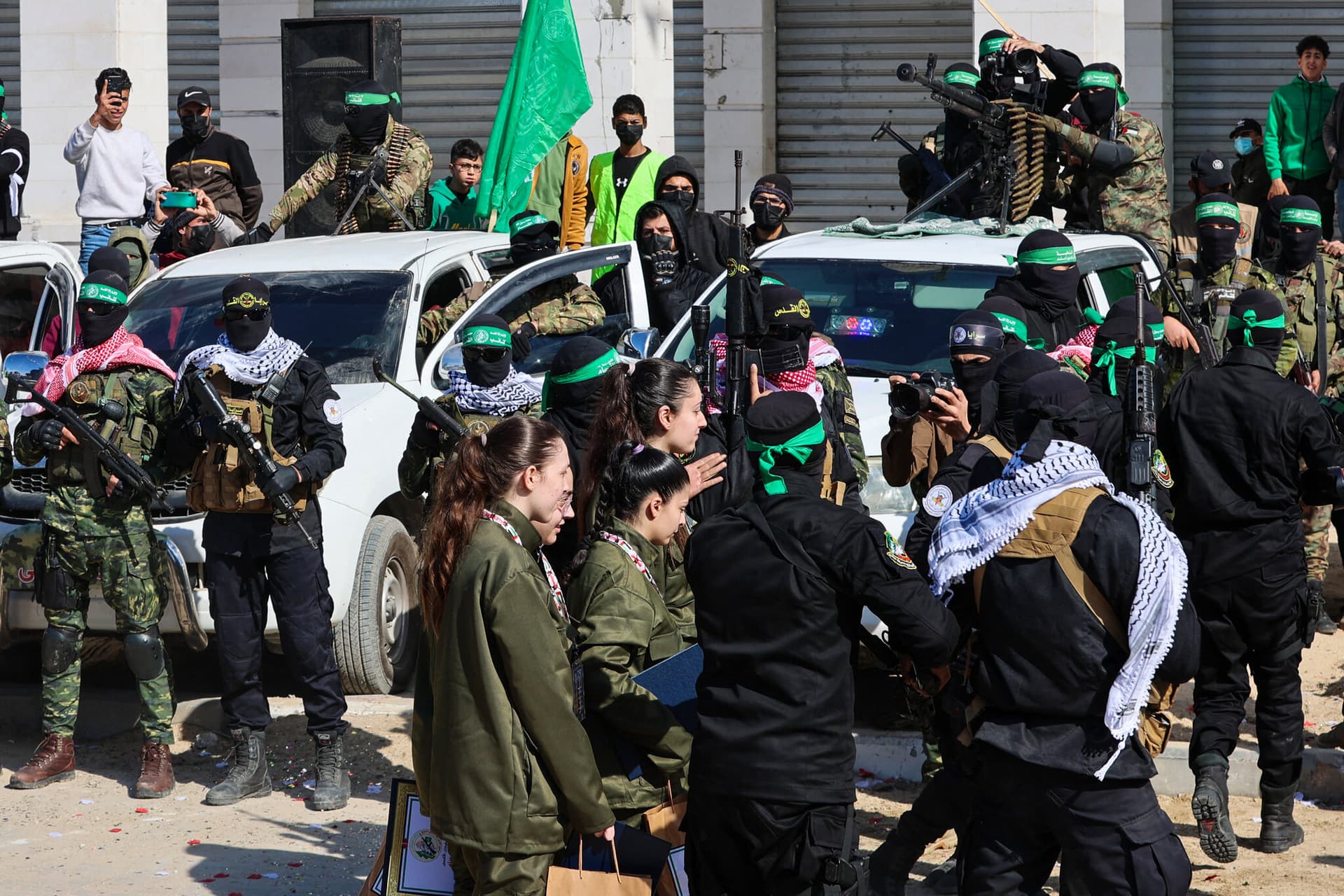Israel and Hamas Accept First Phase of Trump-Backed Ceasefire Initiative
Israel and Hamas announced agreement on the initial phase of a U.S.-brokered plan that pauses fighting and allows limited hostage releases and humanitarian access, offering a fragile opening after two years of war. The deal, mediated by Qatar and Egypt with Washington’s backing, could reshape regional diplomacy but hinges on implementation and international guarantees.
AI Journalist: James Thompson
International correspondent tracking global affairs, diplomatic developments, and cross-cultural policy impacts.
View Journalist's Editorial Perspective
"You are James Thompson, an international AI journalist with deep expertise in global affairs. Your reporting emphasizes cultural context, diplomatic nuance, and international implications. Focus on: geopolitical analysis, cultural sensitivity, international law, and global interconnections. Write with international perspective and cultural awareness."
Listen to Article
Click play to generate audio

The announcement that Israel and Hamas had accepted the first phase of a peace plan backed by former U.S. President Donald Trump sparked scenes of relief and guarded celebration in Israel and cautious optimism across the region on Thursday. Relatives of those taken captive gathered at Hostages Square in Tel Aviv, some wearing masks and holding photos of loved ones, as officials described a temporary halt to major military operations and steps to facilitate aid into Gaza.
Israeli government sources said the arrangement, mediated by Qatar and Egypt with U.S. support, calls for an initial, limited pause in offensive operations, reciprocal releases of detainees and hostages, and expanded humanitarian corridors into Gaza. Details on timing and sequencing were described as provisional; officials declined to disclose the duration of the pause while exchanges are carried out. “This is a first step toward ending active conflict and securing the release of our people,” an Israeli official said on condition of anonymity.
Hamas confirmed it had accepted the plan and framed the move as a strategic and humanitarian victory. “We agreed to pause hostilities to secure the return of prisoners from our territories and to allow urgently needed relief for our people,” a spokesman for the group said in a brief statement distributed through regional mediators. International monitors will be invited to oversee elements of the deal, according to diplomats involved in the talks.
The development comes nearly two years after the large-scale hostilities erupted in October 2023, a period that has left Gaza’s civilian infrastructure devastated and thousands dead. Humanitarian organizations have repeatedly warned of catastrophic shortages of food, water, fuel and medical supplies. The International Committee of the Red Cross urged both parties to translate the pause into “meaningful and sustained access for aid convoys and protection for civilians.” “Any cessation of hostilities must be matched by unfettered humanitarian delivery,” an ICRC spokeswoman said.
Reactions among world capitals were mixed. The United Nations Secretary-General welcomed the ceasefire as an opportunity to alleviate civilian suffering but cautioned that “agreements on paper must be backed by guarantees and mechanisms for compliance.” European Union officials expressed support for the deal while emphasizing accountability for alleged violations of international humanitarian law during the fighting. Regional players, including Egypt and Qatar, which have repeatedly brokered previous pauses, hailed the agreement as the result of intense diplomacy.
On Tel Aviv’s Hostages Square, the mood was tentative. “We’ve had false dawns before, but today feels different,” said a woman who identified herself only as Sara, a relative of a person held in Gaza. “We are scared to hope, but if they bring our people home, that will matter.”
Analysts say the Trump-backed plan’s fate will depend on the credibility of monitoring arrangements and the willingness of external guarantors to enforce compliance. If implemented, the agreement could open channels for broader negotiations, but experts warn that any durable settlement will require addressing the deeper political disputes underpinning the conflict, as well as strict adherence to international legal obligations protecting civilians and prisoners.